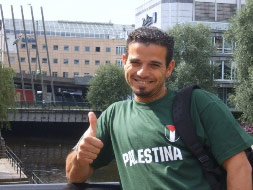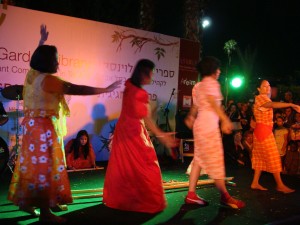 The Jerusalem Post, November 20, 2009
The Jerusalem Post, November 20, 2009
Halo-halo, the Filipino dessert of American-style shaved ice, Spanish dulce de leche, and Asian mung beans is an edible example of the Philippines’ unique layering of cultures. On the weekends, you’ll find halo-halo at impromptu stands in Tel Aviv’s Tachana Merkazit—and if you take a stroll through the surrounding neighborhood, you’ll see a similar stacking of flavors in the eateries that cater to Israel’s foreign workers and African refugees.
Pinoy-Namaste, with its blended Filipino-Nepali name, seems a good place to start. Anchoring a corner of the Central Bus Station, this restaurant and party hall serves favorites from the Philippines like kare-kare and lechon kawali. Kare-kare is a thick, peanut-based stew, peppered with beef, oxtail, and vegetables. Depending on the cook’s home region, this heavy soup is sometimes punched up with chili and mouth-puckering calamansi lime juice.
Lechon kawali is made from small cubes of pork belly. Fatty and soft, the bits are boiled in water spiked with garlic and salt. Next, the meat is deep fried to a golden brown. Under the guidance of owner Ruby Sukjai, Pinoy-Namaste dishes up lechon as juicy and crisp as it is in the Philippines.



